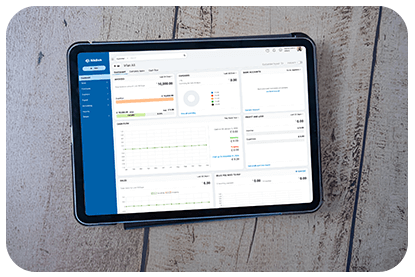19 April 2024
What is Bookkeeping and Why It Matters for Your Business
Bookkeeping is essential for effectively managing and organizing a business’s financial records. Whether you are running a small startup or a large corporation, keeping track of your financial activities ensures everything stays organized. In this article, we’ll explore what is bookkeeping is, why it matters, and how it can help you succeed in your business.
Understanding Bookkeeping: The Backbone of Your Business
At its core, bookkeeping refers to the systematic recording, organizing, and tracking of a business’s financial transactions. These transactions can include sales, purchases, expenses, and payments. Proper bookkeeping helps businesses maintain an accurate record of their financial health, which is essential for growth and sustainability.
Why Bookkeeping is Crucial for Your Business
Effective bookkeeping provides clarity and insights into the financial status of your business. Here are some reasons why it’s important:
1. Keeps You Compliant with Tax Laws
One of the primary reasons to keep accurate books is to comply with tax regulations. Proper bookkeeping ensures that you have the necessary documentation for filing taxes and staying in line with government requirements. Mistakes or discrepancies can lead to fines, penalties, or even legal issues.
2. Helps in Financial Planning
With accurate records, you can make informed decisions. Understanding your cash flow, profits, and expenses allows you to plan and set realistic financial goals. Good bookkeeping helps in forecasting future earnings and identifying areas where cost-cutting may be necessary.
3. Increases Business Efficiency
Bookkeeping helps streamline financial processes. By maintaining up-to-date records, you avoid the chaos of sifting through receipts and invoices at the last minute. This increases business efficiency and productivity, leaving more time to focus on growing your business.
4. Enables You to Secure Financing
When seeking loans or investments, having a clear record of your financial situation is essential. Lenders and investors want to know the state of your business’s finances before they commit. Bookkeeper can provide the necessary documents and reports to back your financial claims.
5. Assists in Business Decision-Making
Bookkeeping provides you with accurate data that can guide your decision-making. Whether you’re considering expanding, hiring new employees, or investing in new technology, knowing the financial impact is crucial. Bookkeeper gives you the information needed to make these decisions confidently.
Key Bookkeeping Tasks Every Business Should Follow
To maintain a healthy financial system, certain tasks must be consistently followed:
1. Recording Daily Transactions
Each sale, purchase, payment, and expense should be recorded as they happen. This ensures that your financial records are up-to-date and reliable.
2. Reconciliation of Accounts
Reconciliation involves comparing your records with bank statements to ensure accuracy. It helps identify any discrepancies or errors early on.
3. Managing Payroll and Employee Payments
If you have employees, managing payroll is another key aspect of bookkeeping. Ensuring employees are paid accurately and on time is essential for maintaining morale and complying with labor laws.
4. Generating Financial Statements
Generating regular financial statements such as balance sheets, income statements, and cash flow reports is essential for understanding the health of your business. These statements provide insights into profits, losses, and overall performance.
Bookkeeping Methods: Which One Works for Your Business?
There are two main types of bookkeeping systems:
1. Single-Entry Bookkeeping
This method records each transaction once, typically in a cashbook. It’s suitable for smaller businesses with fewer transactions, but it’s not as detailed or reliable as the other method.
2. Double-Entry Bookkeeping
In double-entry bookkeeping, every transaction is recorded twice – once as a debit and once as a credit. This method provides more accurate and comprehensive financial records, which are especially useful for larger businesses.
Outsourcing Bookkeeping: Should You Do It?
If bookkeeper becomes overwhelming, consider outsourcing. Hiring a professional can free up your time and ensure your financial records are handled accurately. Outsourcing also helps reduce the risk of errors and ensures compliance with tax regulations.
Technology and Bookkeeping: Making Your Life Easier
In today’s digital world, bookkeeping software can streamline the process. Tools like QuickBooks, Xero, and QuickZeros help automate much of the work, making it easier to keep track of finances. With real-time updates and cloud storage, these tools ensure you always have access to your financial records.
Read More About: 5 Reasons Why Business Expense Tracking is Crucial and How to Simplify It
Conclusion:
To sum up, bookkeeper is not just about numbers; it’s about understanding and managing the financial pulse of your business. Whether you’re trying to keep your taxes in check, secure financing, or make smarter decisions, accurate records are vital. Stay on top of your finances, and your business will thrive.




